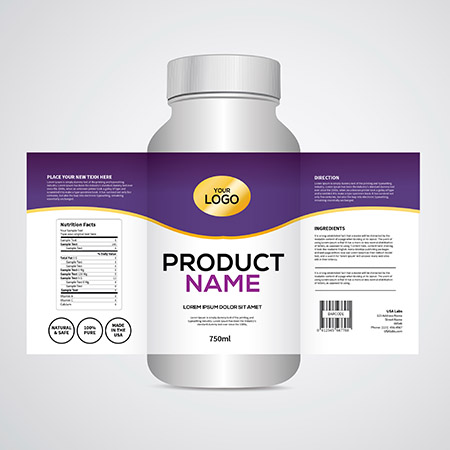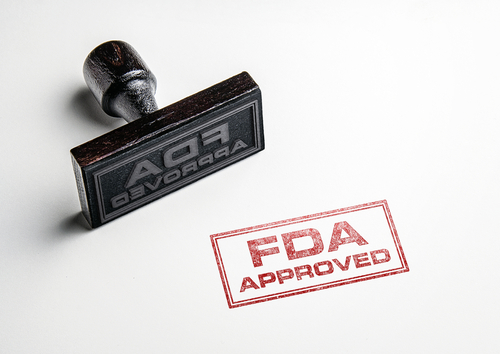
7 Tips for Marketing Private Label Supplements
As a producer of natural products, you are aware that a thriving line of private label supplements is an excellent foundation for the rest of your business. Nutritional supplements are more popular than ever, and it is a great time to consider moving your business strategy in this growing direction. You already have an established customer base who loves your products, so why not impress them with a line of in-house supplements? This can increase sales, encourage repeat purchases and establish customer loyalty for your business. Selling high-quality supplements that stand out from the crowd is not necessarily an easy task, but in the current market, it is easier than ever before. The market for high-quality probiotic supplements is continuing to grow. With a customer-base of this size, there is plenty of market space for anyone who is offering a well-made and marketed product. There are dozens of successful marketing plans and strategies for selling nutritional products. While your products need to be unique, memorable and distinct from the rest, it is also best not to overthink this process. With that in mind, here are our seven top tips for marketing your private label supplements:

Know Your Target Audience
You are much more likely to make a good return on your investment if you consider the customer demographic you want to reach. This includes using statistics to identify the specific populations or target markets who will be interested in your supplements. Knowing these statistics allows you to direct your marketing and place your merchandise directly in front of the people who will buy it. Information demographics include factors such as age, gender, location, level of education or income, employment and even ethnicity. It also identifies if your target group is married or single or if they have children. Demographic reports can also contain information that is referred to as psychographics. This goes beyond the information presented by regular reports, and includes details about the lifestyles, interests, attitudes and values of participants.
 This type of information helps you identify the characteristics of the people who are interested in healthy living. It can even designate very specific customer bases such as the ideal audience for your best digestive enzymes for gluten intolerance. The process is straightforward and logical. Perhaps you are marketing a product that contains vegetarian digestive enzymes. Demographics identify that the target group for this product are men and women between the ages of 18 and 40. Additionally, research shows that price is an important factor for this age group. Based on this information, you should aim to make your private label supplements economical and market them to younger men and women. The more you know about your clients, the easier it is to direct your efforts towards catering to their needs, and it increases your ability to appeal to the people who are likely to buy your products. Dividing the market by gender is a common strategy, particularly for health-related products. This just makes sense, as men and women often have different biological needs and aesthetic goals. Despite this, social media has led to an increase in “fitspiration” and physical fitness awareness and the genders are now virtually equal in their demand for protein shakes and meal replacements options. It is essential to bear these trends in mind for marketing strategies.
This type of information helps you identify the characteristics of the people who are interested in healthy living. It can even designate very specific customer bases such as the ideal audience for your best digestive enzymes for gluten intolerance. The process is straightforward and logical. Perhaps you are marketing a product that contains vegetarian digestive enzymes. Demographics identify that the target group for this product are men and women between the ages of 18 and 40. Additionally, research shows that price is an important factor for this age group. Based on this information, you should aim to make your private label supplements economical and market them to younger men and women. The more you know about your clients, the easier it is to direct your efforts towards catering to their needs, and it increases your ability to appeal to the people who are likely to buy your products. Dividing the market by gender is a common strategy, particularly for health-related products. This just makes sense, as men and women often have different biological needs and aesthetic goals. Despite this, social media has led to an increase in “fitspiration” and physical fitness awareness and the genders are now virtually equal in their demand for protein shakes and meal replacements options. It is essential to bear these trends in mind for marketing strategies.

The Price Is Right
To have a competitive edge, your supplement must be in line with the others in its class. Price your private label supplement lower than similar products from well-known brands. Customers will compare your label to that of the other brand. After seeing they are interchangeable, people happily choose the less expensive product because they feel they discovered a deal.
 However, pricing your product too low can make customers uneasy. Some consumers are not attracted to “value” lines and will actually be put off a purchase by a lower price, even if the product in the packaging is the same. The trick is to offer better value without damaging the reputation of your brand with a lower price. You can do this through different marketing strategies. Push your products with specials such as buy one get one free or buy the second product at half price. Specials place your merchandise in the spotlight and makes consumers feel they found a deal on a great product.
However, pricing your product too low can make customers uneasy. Some consumers are not attracted to “value” lines and will actually be put off a purchase by a lower price, even if the product in the packaging is the same. The trick is to offer better value without damaging the reputation of your brand with a lower price. You can do this through different marketing strategies. Push your products with specials such as buy one get one free or buy the second product at half price. Specials place your merchandise in the spotlight and makes consumers feel they found a deal on a great product.

Deliver Expertise Through Your Words
Ensure your private label is one your customers are confident in. Your brand should have a concise description and a slogan that clearly communicates the benefits your product can bring to them. Do not confuse your audience with gimmicks that are overly clever or too scientific in your product narratives. Make it clear you are experts in the field and your product will deliver on the claims you make. Back up your claims with evidence, such as studies or clinical trials that have been performed on the ingredients–or better still, on your supplement. Gain notoriety for your product by seeking backing from experts or well-known professionals in the market. You can advertise both your product and their services on your packaging and advertising material. Contact doctors and nutritionists to see if they are interested in speaking for you and becoming a figurehead for your merchandise. Sending samples to potential spokespersons is an excellent way to gain their favor. Customers have more faith in nutritional supplements if a well-known fitness expert, doctor or other qualified nutritional expert has vouched for them. This builds a reputation for your brand and helps you receive the best possible customer feedback.

Packaging Matters

Consumers buy a product for the product itself and not the packaging, right? Not necessarily. In fact, many people make purchasing decisions based solely on the appeal of a product’s packaging. This makes it easy to increase customer satisfaction and sales by simply developing more appealing packaging. Despite the influence that packaging has on the buying habits of consumers and the minimal price of upgrading colors and designs, most brands and retailers package their products cheaply. This is a mistake, and carefully considering the appearance of your product is one of the best things you can do for your marketing strategy. Packaging refers to all the characteristics of a product’s casing. It includes the material, shape and color, as well as the graphics and the labeling of your merchandise. A study from October 2012 collected data from more than 3,000 American consumers and showed just how important packaging is to sell a product. More than 64 percent of participants indicated they have directly purchased products off the shelf with no prior knowledge of the product itself simply because they were attracted to its packaging. The majority of people do not research products while shopping, despite the fact that smartphones have made search engines readily available. This means that packaging is vital to consumer decisions, and it is consistently ranked as one of the highest drivers of repeat purchases. In fact, it has a bigger influence than TV or internet advertising, and even surpasses the importance of endorsements from family and friends. Aim to create packaging that is visually appealing and functional. Even attractive packaging can lead to dissatisfaction if it is not well-designed and easy to use. Imagine how you might feel if, after only a couple of uses, the packaging of your purchase no longer closed properly and the product became damp and unusable. It is important to first engage in some research to see what works for your target audience and what they find most attractive. After this, involve a graphic designer in developing a design for your product, including the color scheme and label concepts. It should be eye-catching and allow your product to stand apart from the others.

Labeling

Following FDA compliance codes for nutritional products is vital. It is very frustrating and a significant waste of financial resources to go through the process of developing beautiful labels for your product only to find they cannot legally be used. Not only does incorrect labeling decrease profits, but it can also harm your brand. Customers do not trust supplements that disappear from the shelves after being labeled incorrectly. In our constantly-connected society, information spreads quickly via the internet, and such mishaps could be headline news in certain circles. Even after you return your product to stores with the correct information and labeling, sales will continue to suffer. A customer’s memory is long, and a once-faulty product will always carry a damaged reputation. It is a good idea to employ a graphic designer who is familiar with the rules and regulations of the labeling of nutritional products. Protect yourself from wasting time, money and your reputation by starting off with labels that comply with FDA standards.

Product Selection
After you have established a base of consumers for your initial private label supplements, it is time to improve the variety of available products. Pay attention to supplements that sell particularly well and keep them in stock so that customers are not kept waiting for that product or perhaps for new lines. Plan so that your next supply of nutritional supplements is available before the first batch sells out. Monitor your best sellers so you can price them lower and offer specials. This will attract buyers to repeat purchases and expose them to your new product range each time they come into the store. It is essential that your staff is familiar with the supplements and can expertly promote them to customers. This is one of the best methods for encouraging repeat sales. While not every supplement company has the ability to make in-person visits to retailers, it is a beneficial approach that builds brand loyalty and gives your brand a face.

It Is All About the Internet
Sure, people still watch TV, but nowadays, most of us use the internet to do our research on products and healthcare. The internet is an endless resource, and it is critical that your nutritional or health supplement comes across in a favorable light on social media. Millennials are not the only group who uses the internet for health-related issues. Older generations now also make their purchasing decisions according to what they find on the internet. There are a number of health and wellness websites that are valuable resources for helping you market your products. Social media is another powerful marketing tool. Make Facebook and Twitter accounts for your brand and keep these up-to-date. Post studies that show your products in a good light and articles that offer information about the ingredients in your products. These social media outlets also allow you to interact with your customers, which lends your products a personality and likeability and increases customer trust in you and your brand.
 Websites are where most customers will collect information and develop impressions of your brand, which makes them a fundamental aspect of your sales. Your website should be professional, unique and offer relevant content. Link it to your social media platforms and update your site regularly to keep customers coming back for the latest information about your products. Online shopping has become the preferred mode of shopping, and it is important you have an online retail site. It should contain all the information the customer could possibly need, as well as statements from your brand ambassadors. You have complete control of how your products are marketed on your online shop and the advantage of not placing your product next to those of competitors.
Websites are where most customers will collect information and develop impressions of your brand, which makes them a fundamental aspect of your sales. Your website should be professional, unique and offer relevant content. Link it to your social media platforms and update your site regularly to keep customers coming back for the latest information about your products. Online shopping has become the preferred mode of shopping, and it is important you have an online retail site. It should contain all the information the customer could possibly need, as well as statements from your brand ambassadors. You have complete control of how your products are marketed on your online shop and the advantage of not placing your product next to those of competitors.
Market for Success
While there is a lot to consider when you develop a marketing strategy, including these seven tips will put you on the track toward success. Succeeding with your private label supplement starts with developing a high-quality product, but the marketing strategy that you choose to pursue is what will get your exceptional products to the consumers who will benefit from them and guarantee a satisfied customer base.


